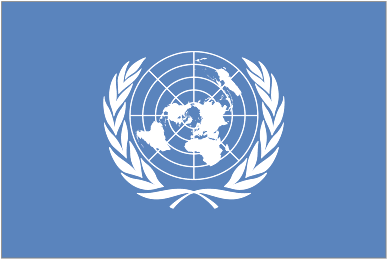
The United Nations Human Rights Council has now adopted a resolution demanding that the Syrian Government cease all violence, protect its people, and put an end to widespread and systematic abuses such as the killing and persecution of protesters.
The text was adopted by a vote of 41 in favor to three against with two abstentions by the 47-member Council, which is wrapping up its current session in Geneva.
The Council strongly condemned the “sharply escalating widespread, systematic and gross violations of human rights and fundamental freedoms perpetrated by the Syrian authorities,” as well as the attacks against civilians and “extensive” violations of children’s rights.
The UN estimates that more than 8,000 people, mostly civilians, have been killed and tens of thousands displaced since the uprising – part of the broader Arab Spring movement across North Africa and the Middle East – began in March last year.
The Council also strongly urged that the Syrian authorities to put an immediate end to all violence and all human rights violations. It demanded that they meet their responsibility to protect their population, and respect the popular will, aspirations and demands of the Syrian people.
In its resolution, the Council – which is responsible for strengthening the promotion and protection of human rights around the globe and for addressing human rights violations – also extended the mandate of the three-member commission of inquiry that it set up last September to probe alleged abuses in Syria since last March, when the pro-democracy protests began.
The commission, which presented its report to the Council earlier this month, documented patterns of summary execution, arbitrary arrest, enforced disappearance, torture, including sexual violence, as well as violations of children’s rights by Syrian security forces.
Gravely concerned that crimes against humanity had been committed, it called on the Government to put an immediate end to the violations and bring the perpetrators to justice.
“The only solution is a negotiated settlement with inclusive dialogue among all parties,” the commission’s chair, Paulo Pinheiro, told a news conference at UN Headquarters in New York.
The ongoing violence has displaced tens of thousands of Syrians within the country and thousands have sought refuge in neighboring countries, including Lebanon, Jordan, Turkey and Iraq.
The UN High Commissioner for Refugees (UNHCR) today appealed for $84 million to support an inter-agency plan to respond to the needs of Syrian refugees in those countries – currently estimated to number nearly 40,000.
“The plan is based on an estimate that in the next six months assistance will be needed to support some 100,000 people. This will mainly comprise Syrian refugees, as well as some third-country nationals,” a UNHCR spokesperson, Adrian Edwards, told reporters in Geneva.
A separate appeal, led by the UN Office for the Coordination of Humanitarian Affairs (OCHA), is expected in the near future to cover humanitarian needs inside Syria, Mr. Edwards added.
Also today, the UN Children’s Fund (UNICEF) unveiled plans to address the urgent health, educational and other needs of tens of thousands of Syrian children being sheltered in surrounding countries.
UNICEF’s Regional Director for the Middle East and North Africa, Maria Calivis, pointed out to media in Geneva that children had not been spared the violence sweeping Syria over the past year. At least 500 Syrian children have been killed in the violence thus far, while hundreds more have been injured, put in detention or abused.
Meanwhile, the Joint Special Envoy of the UN and the League of Arab States for Syria, Kofi Annan, is to travel this weekend to Moscow and Beijing to discuss the ongoing crisis. In addition, the team of experts that went to Damascus to discuss ways to implement the six-point proposal that the envoy presented there has returned after three days of “intensive” talks.
The Syrian responses to the proposal were now being studied and negotiations continued, Mr. Annan’s spokesperson, Ahmad Fawzi, told reporters in Geneva.
“Negotiations are at a very difficult stage, and will not be conducted in public,” Mr. Fazwi said. “However, every minute counted and progress will need to be made soon.”